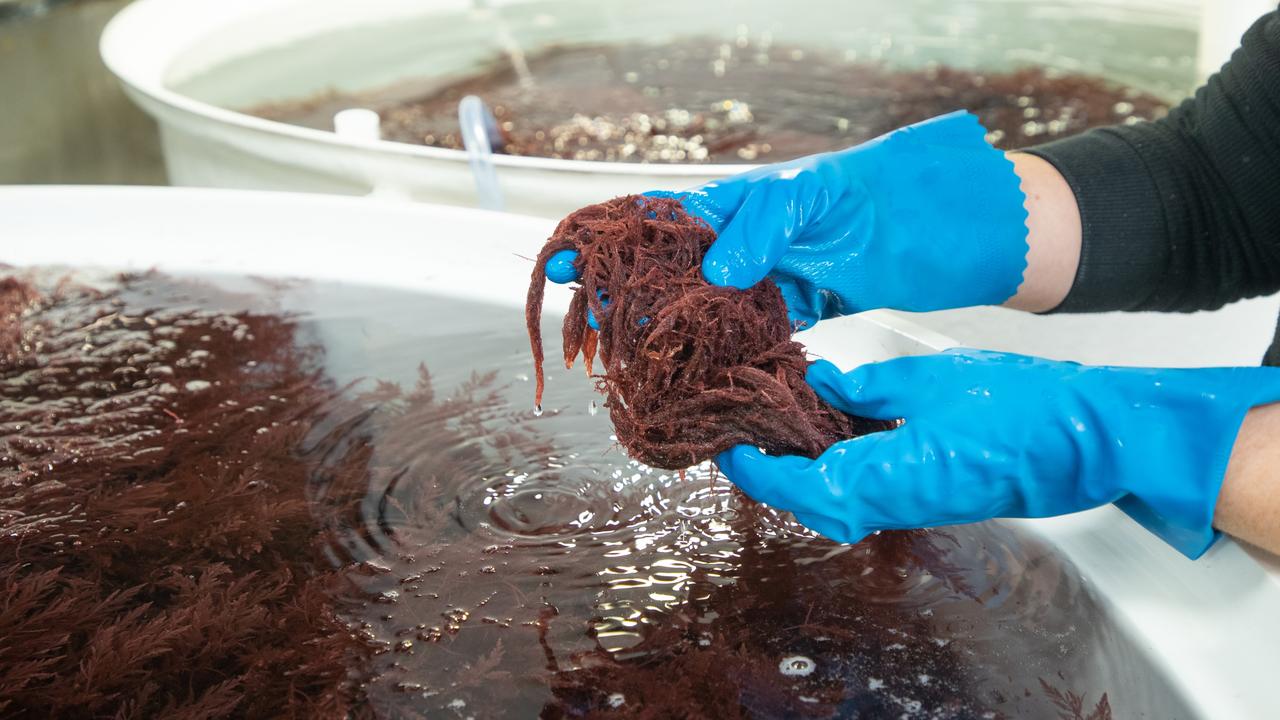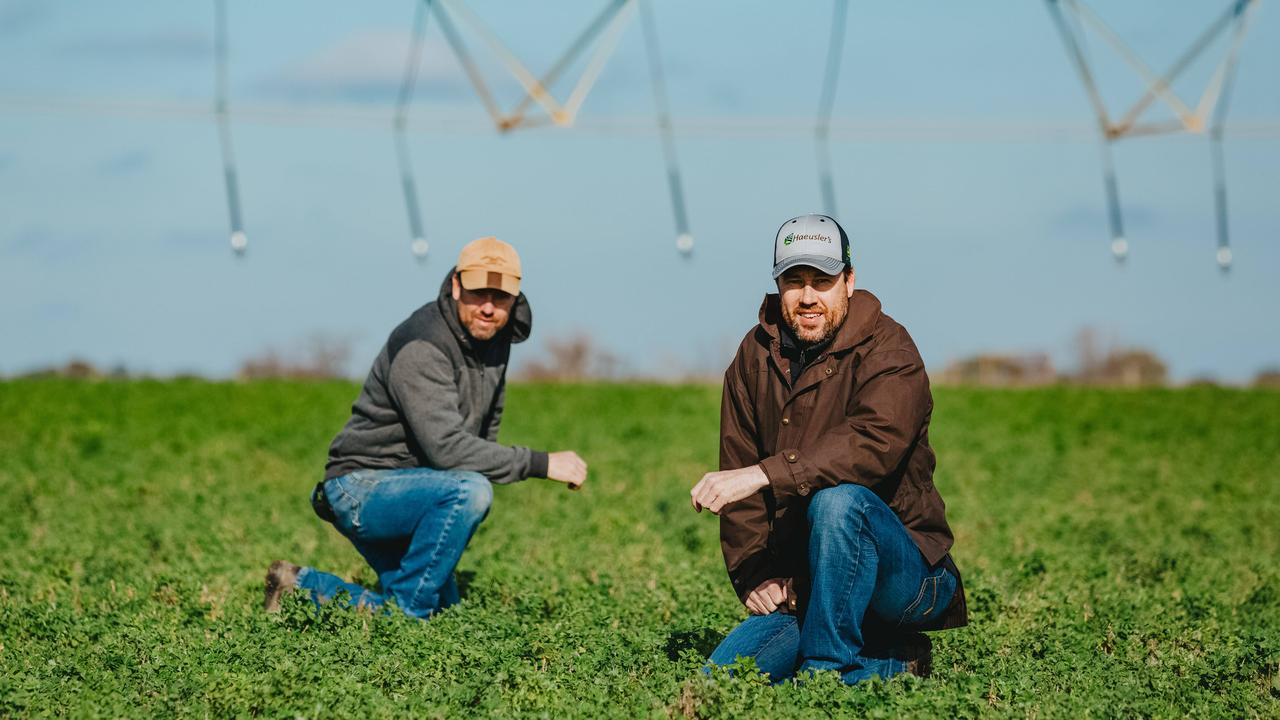Herry’s Harvest boxed vegies shifts to online ordering
Wangaratta locals can’t get enough of the Herry family’s organically grown seasonal vegetables.
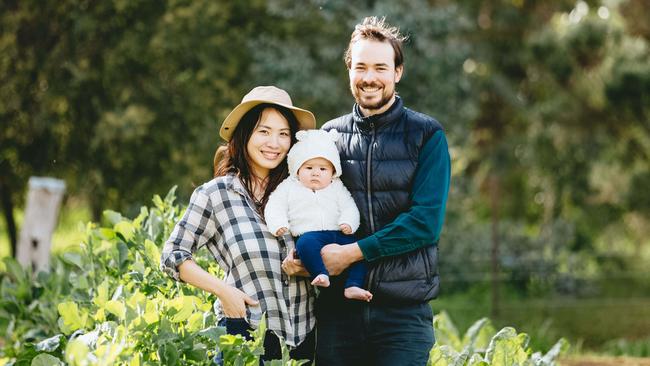
AS A child, Jack Herry always loved growing plants, so it came as no surprise to family and friends when he started his organic vegetable venture on river flats on the outskirts of Wangaratta, in Victoria’s North East.
Just as his business, Herry’s Harvest, was taking off and the demand for seasonal produce increasing, COVID-19 hit and Jack had to quickly rethink his plans as regional farmers’ markets ceased and limited contact rules set in.
“We were selling at local farmers’ markets and had just started delivering our vegie boxes for pick up in town and from the farm gate, but that all changed,” he says.
Undaunted, Jack and his wife, Arisa, rethought their business operations, organised no-contact vegetable box collections from their farm and joined the online Wangaratta Farmers’ Market Food Hub.
“We left the prepaid vegie boxes on our back porch and people collected them, so there was no social contact for about two months,” says Jack, 32.
“We have been very fortunate in that our business has been supported by many who continued to order vegetable boxes and we have been so busy with the new Wangaratta Farmers’ Market online customised food hub orders. It has really taken off and there are dedicated purchasers who want to buy quality produce each week.”
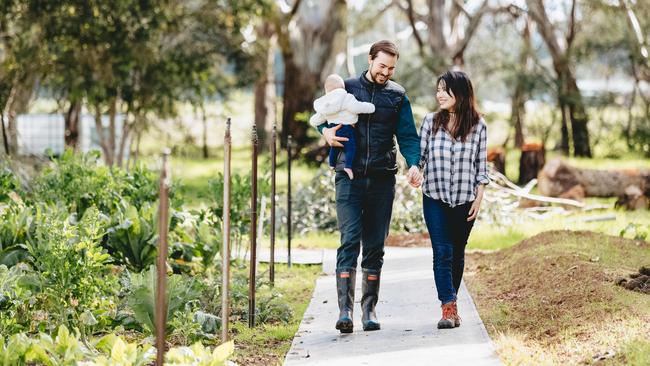
They have had up to 100 orders a week and have garnered the interest of other groups looking at setting up similar local food distribution hubs.
“We are also very pleased regional farmers’ markets have started to re-open as well and there is such a strong demand for quality fresh produce.”
REGION PROFILE: WANGARATTA
An easy 250km drive from Melbourne, straight up the Hume Freeway, Wangaratta is a gateway to Victoria’s pristine High Country. The regional city’s well established farmers’ market shifted online in March, giving local producers a sales lifeline. It boasts affordable land a stone’s throw from the North East’s peaks and river valleys.
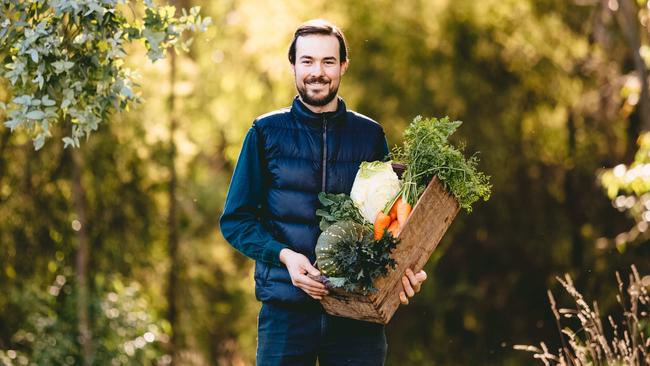
GROUNDED APPROACH
JACK has 1400 square metres of his two-hectare property under cultivation and has spent much time ensuring the soil quality is at a premium.
“I spent several years preparing it all and thinking about what we wanted to achieve and it took a while to enrich the soil to ensure the best quality vegetables would thrive,” he says.
Jack’s family ran a nursery in Yarrawonga and Lilydale for many years, so he has always been fascinated by the science of growing plants.
“I also love learning about what makes the soil rich and how that translates into great produce,” says Jack, who studied speech pathology in Melbourne and also works part time in healthcare support in Wangaratta to supplement his income.
“The opportunity came up for me to purchase the small farm, which is five kilometres from the CBD, and we jumped at it as I believed it had a lot of potential.”
Arisa, who is from Japan and lived near Tokyo, also helps in the business when she isn’t busy with their daughter, Poppy, who is 4½ months old.
“It was a big change from Tokyo to
living in the country, but we both love it here and it is a great place to bring up Poppy,” Jack says.
Jack has been pleasantly surprised by how the business has evolved, even in these challenging times.
“There’s a big jump from growing your own vegetable garden at the back of a share house to growing commercially and we have learnt by trial and error what is suited and does well in the area,” he says.
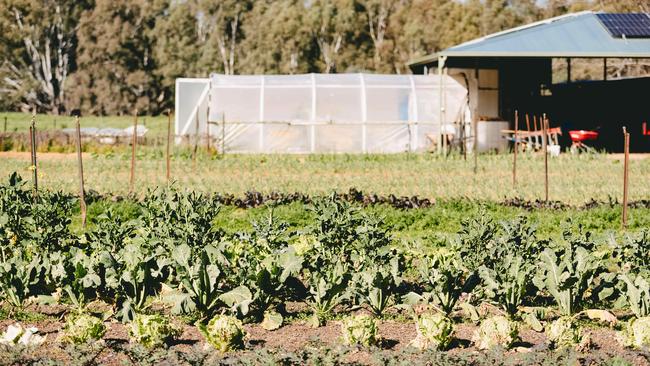
Jack grows heirloom varieties from open pollinated seed, growing in a greenhouse and replanting at maturity.
“It is an entirely manual operation and we have had a few disasters with frost when I have become sidetracked and wasn’t around, but we started again and I learnt to pay attention to the temperature drops,” he says.
Jack says he has loved his experience so far and is happy to share his knowledge.
“I really noticed how few mentors there are for small intensive growers and I struggled to get advice in the early days, so I am very happy to pass on my experiences,” he says.
Jack uses minimal mechanical tillage and cultivation while encouraging soil biology with gentle organic fertilisers. The vegetables are watered by a combination of low-pressure overhead sprinklers and drip line in summer.
“We do not use synthetic inputs – only composted plant matter, which we make on the farm, along with natural rock deposits of lime and rockdust, animal manure – organic certified and local – and carbon mulches including wood chips and pea straw,” he says.
“The more I get into agronomy and soil biology and study the composition of the soil, the more interested I have become.”
Jack believes if pests or diseases hit, it is better to go without than use chemicals.
“We will first look at our soil and crop health, then implement physical interventions including exclusion methods, or good old bug squashing and as a last resort, selective use of organic crop products,” he says.
“We love it here and it is very satisfying seeing our vegetables sell.
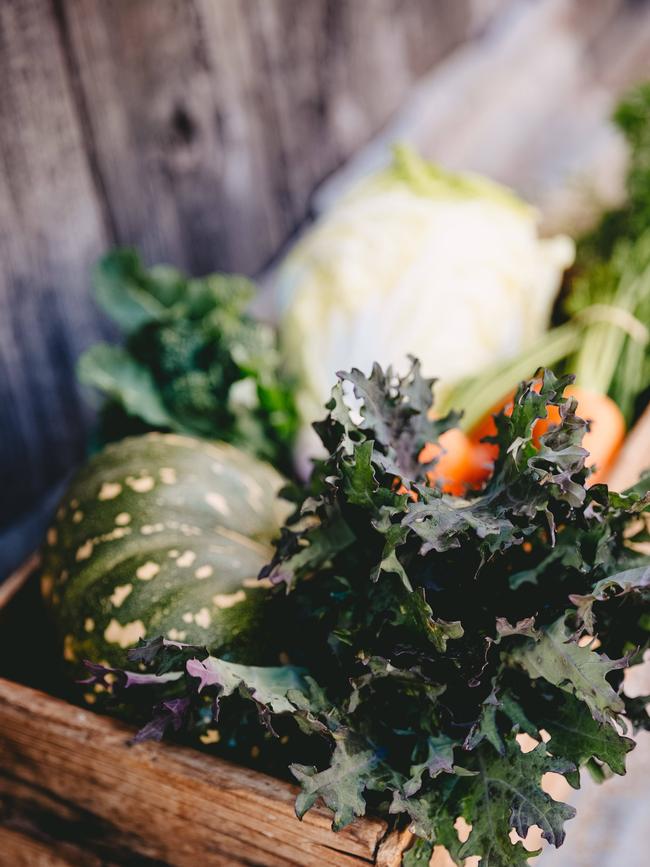
“Our mantra is we are a small farm where people power and natural methods of food production mingle with a small-economy paradigm in order to raise up nourishing crops for local distribution at a fair price.”
FARM FILE: Herry’s Harvest
Jack Herry and his wife, Arisa, run Herry’s Harvest on their two-hectare property at Wangaratta. They grow organic vegetables including brassicas, pumpkin, peas, capsicum, eggplant, tomatoes, cucumbers, lettuces, beetroot and carrots, selling through the Wangaratta Farmers’ Market Online Food Hub.
MORE
ELPHINSTONE ORCHARDISTS STUNNED BY PANDEMIC RUSH ON APPLES
YOUNG ARCHITECTS DITCH DESKS FOR GROWING GRAPES
TREECHANGER SURGE: VICTORIA’S TOP SHIRES FOR SMALL FARM SALES

